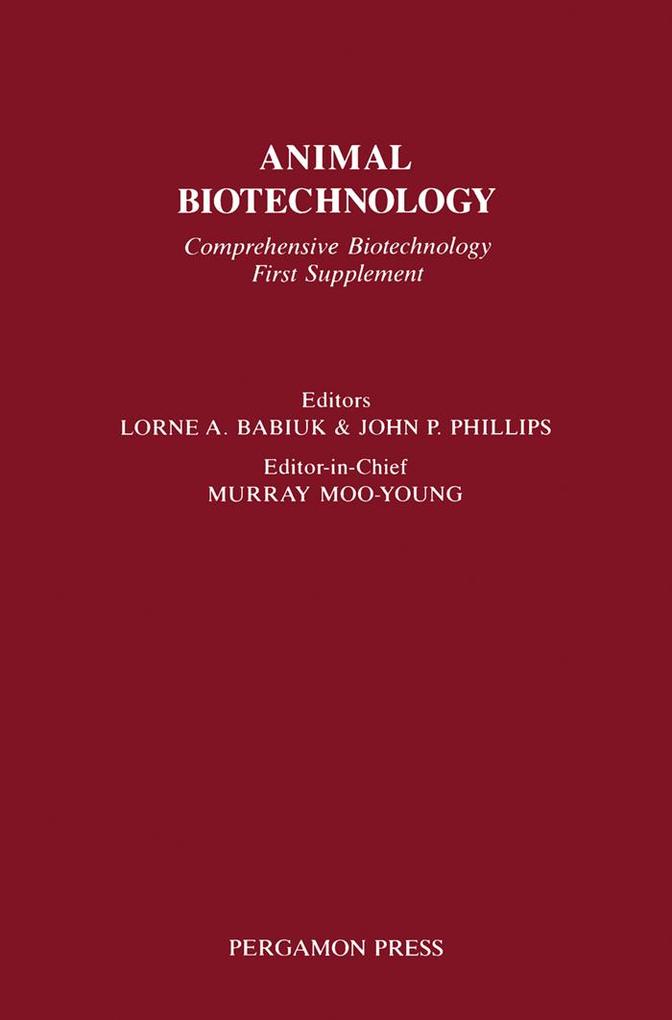
Sofort lieferbar (Download)
The advent of biotechnology has the potential to develop a variety of novel or better quality products for the treatment of a large number of diseases in livestock. In addition, as we understand more about the reproductive physiology of animals, the potential exists to dramatically increase the productivity of animals through better therapeutics and diagnostics for the control of many infectious diseases. Productivity can also be increased through animal breeding strategies including gene transfer, micromanipulation of embryos and gamete sex selection. As well as being a valuable reference to current knowledge in these areas, this first supplement to Comprehensive Biotechnology also looks at societal concerns over the use of antibiotics and chemical residues in meat and milk products, which are forcing biotechnologists to investigate more natural means of controlling infection by stimulating the animal's own immune system to combat infection. The identification of a variety of cytokines which are involved in regulating immune responses provides opportunities to use the animal's natural defence mechanisms to combat many infections or increase the animal's resistance to such infections. These approaches should provide tools for eventual elimination of specific diseases from counties, regions or whole continents.
Produktdetails
Erscheinungsdatum
22. Oktober 2013
Sprache
englisch
Dateigröße
56,87 MB
Herausgegeben von
L. A. Babiuk, J. P. Phillips, Murray Moo-Young
Verlag/Hersteller
Kopierschutz
mit Adobe-DRM-Kopierschutz
Produktart
EBOOK
Dateiformat
PDF
ISBN
9781483286587
Entdecken Sie mehr
Bewertungen
0 Bewertungen
Es wurden noch keine Bewertungen abgegeben. Schreiben Sie die erste Bewertung zu "Animal Biotechnology" und helfen Sie damit anderen bei der Kaufentscheidung.










